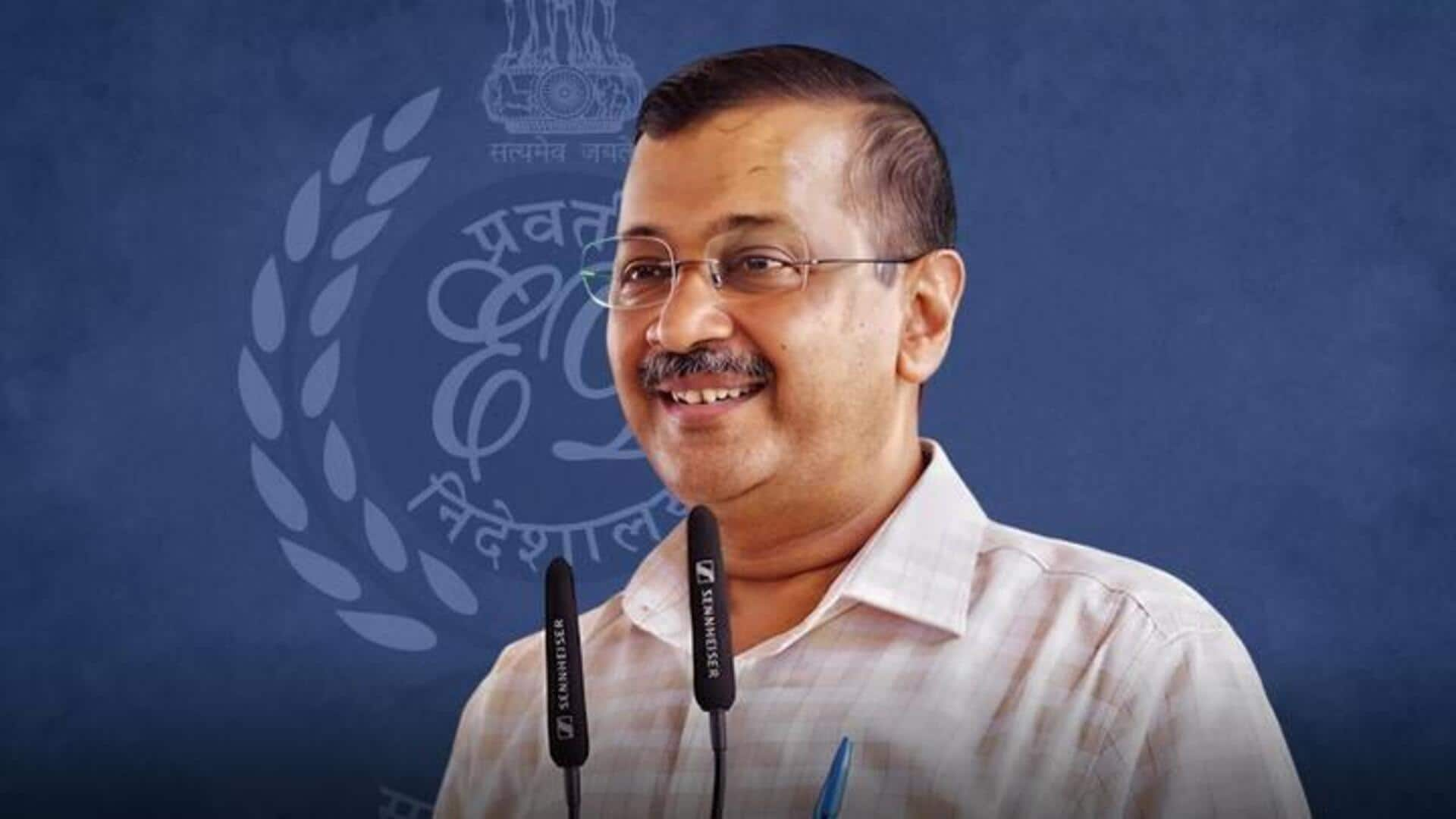
Arvind Kejriwal summoned for 7th time in liquor policy case
What's the story
Delhi Chief Minister Arvind Kejriwal has received a seventh summons from the Enforcement Directorate (ED) in connection to the Delhi liquor excise policy case. Kejriwal has been asked to appear for questioning on Monday (February 26). He last skipped the sixth summons on February 19, saying the probe agency "should wait for the court's judgment before issuing any fresh summons."
Context
Why does this story matter?
The AAP leader has skipped six ED summonses, claiming they are "illegal and politically motivated." He has alleged that the summonses were aimed at preventing him from campaigning in the upcoming Lok Sabha elections. Since Kejriwal has not been named as an accused, the AAP fears that the summonses were issued by the ED in a bid to arrest him.
Summonses details
He appeared before court through video conferencing on February 17
The previous five summonses were issued by the probe agency on February 14, February 2, January 18, January 3, December 22, 2023, and November 2, 2023. On February 17, however, he briefly appeared before a Delhi court through video conferencing for skipping five summonses by the ED in the Delhi liquor policy case. He said that he could not appear physically due to a confidence motion moved by him and the budget session in the Assembly.
ED
ED filed case against him for skipping fifth summons
The Delhi court had summoned Kejriwal after the ED filed a case against him for skipping the fifth summons. The ED reportedly wants to record Kejriwal's statement in the Excise Policy 2021-22 case on issues such as the formulation of policy, meetings held before it was finalized, and allegations of bribery. The central agency alleges that AAP's liquor policy allowed the party to receive kickbacks from cartels, which were then used to fund election expenses in various states, including Goa.
Background
What is the Delhi excise policy case
In November 2021, the Delhi government implemented the revamped liquor excise policy for 2021-22. However, it decided to scrap it less than a year later amid extensive corruption allegations. Central investigation agencies alleged that wholesaler profit margins were artificially boosted to 12% from 5%. It also claimed that the regulation promoted cartelization and benefited those ineligible for liquor licenses for economic gain. Meanwhile, the Kerjiwal-led Delhi administration denied the charges and said the strategy would have increased revenue.